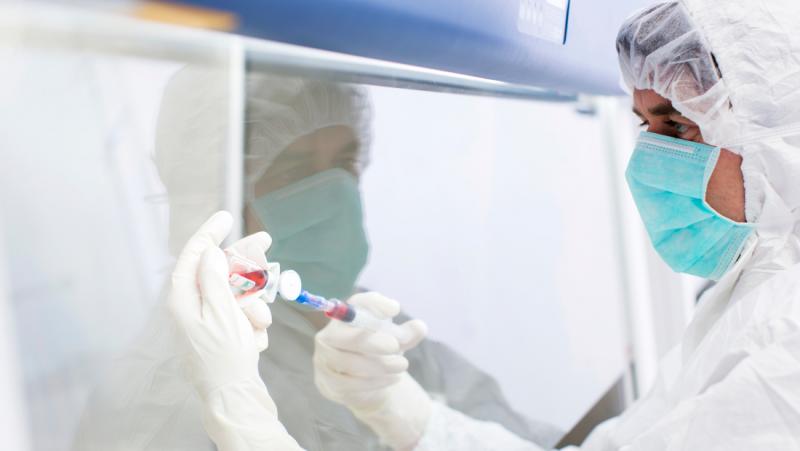Compounding Chemotherapy: Customized Cancer Treatment, Safety Considerations, and Future Perspectives
Compounding chemotherapy is a specialized practice in oncology that involves the preparation of customized cancer medications tailored to individual patients' needs. Unlike commercially available chemotherapy drugs, compounded chemotherapy offers the flexibility to adjust drug formulations, dosages, and delivery methods to optimize treatment outcomes and minimize side effects. This article explores the significance of compounding chemotherapy in cancer treatment, safety considerations, and the potential future perspectives in this field.
Compounding Chemotherapy: Personalizing Cancer Treatment
Cancer is a complex disease with a wide variety of tumor types and patient-specific characteristics. Compounding chemotherapy allows oncologists to tailor treatment regimens to suit each patient's unique medical history, tumor profile, and treatment response. By compounding chemotherapy drugs, healthcare providers can:
1. Customize Dosages and Formulations
Commercially available chemotherapy drugs come in standardized doses and formulations, which may not always be ideal for every patient. Compounded chemotherapy enables precise dosing adjustments based on factors such as body weight, kidney function, and overall health status. Additionally, compounding allows the creation of different formulations, such as oral liquids or transdermal creams, to accommodate patient preferences and improve treatment adherence.
2. Combine Multiple Medications
In certain cases, oncologists may prescribe a combination of chemotherapy drugs to enhance treatment effectiveness or address resistant tumors. Compounding chemotherapy allows the combination of multiple medications into a single dosage form, simplifying treatment regimens and reducing the need for multiple administrations.
3. Reduce Allergens and Preservatives
Some patients may be sensitive or allergic to certain excipients or preservatives found in commercial chemotherapy drugs. Compounding chemotherapy offers the option to exclude specific allergens or preservatives, reducing the risk of adverse reactions and improving treatment tolerability.
Safety Considerations in Compounding Chemotherapy
While compounding chemotherapy offers personalized benefits, it also comes with unique safety considerations to ensure patient well-being and treatment efficacy:
1. Quality and Sterility
Maintaining strict quality and sterility standards during the compounding process is essential to prevent contamination and maintain the integrity of compounded chemotherapy drugs. Compounding facilities must adhere to the guidelines set forth by regulatory agencies to ensure patient safety.
2. Accurate Dosage and Labeling
Precision in compounding chemotherapy drugs is crucial to avoid under- or overdosing, which can have serious consequences for patients. Accurate labeling with clear instructions helps healthcare providers administer medications safely and effectively.
3. Drug Interactions and Stability
Compounding chemotherapy drugs may involve combining multiple medications, increasing the risk of drug interactions. Pharmacists and oncologists must carefully evaluate potential interactions and monitor patients closely during treatment. Additionally, ensuring the stability of compounded formulations is vital to maintain drug potency and efficacy.
4. Compliance with Regulations
Compounding chemotherapy is subject to regulatory oversight to ensure that the practice adheres to quality, safety, and ethical standards. Healthcare providers must comply with relevant laws and guidelines to maintain patient safety and uphold professional integrity.
Future Perspectives in Compounding Chemotherapy
The field of compounding chemotherapy is continuously evolving, with ongoing advancements and future prospects:
1. Personalized Medicine and Genomics
The integration of personalized medicine and genomics is reshaping cancer treatment strategies. As genomic profiling becomes more accessible, oncologists can identify specific genetic mutations in tumors, guiding the selection of targeted therapies for individual patients. Compounding chemotherapy will play a vital role in delivering tailored treatments based on genomic data.
2. Nanotechnology and Drug Delivery
Nanotechnology holds promise for enhancing drug delivery and minimizing off-target effects. Compounded chemotherapy formulations utilizing nanotechnology can improve drug stability, prolong drug release, and enhance tumor targeting, leading to more effective and well-tolerated treatments.
3. Immunotherapy Combination Therapies
The emergence of immunotherapy has revolutionized cancer treatment. Compounding chemotherapy may complement immunotherapies by creating combination therapies that harness the strengths of both approaches, promoting immune responses while directly targeting cancer cells.
4. Decentralized Compounding Services
In recent years, there has been a growing trend towards decentralized compounding services, where specialized pharmacies collaborate with oncology practices and hospitals to provide tailored chemotherapy medications. This decentralized model offers increased accessibility and rapid turnaround times for compounded chemotherapy drugs, benefiting patients in remote or underserved areas.
Compounding chemotherapy is a valuable practice in oncology, offering personalized cancer treatment tailored to individual patient needs. By customizing dosages, formulations, and combinations of chemotherapy drugs, compounding allows oncologists to optimize treatment outcomes and improve patient quality of life. However, safety considerations, such as quality assurance, accurate dosing, and drug interactions, must be diligently addressed to ensure patient safety. As medical science and technology continue to advance, the future of compounding chemotherapy holds immense potential in revolutionizing cancer care through personalized medicine, nanotechnology, and innovative combination therapies. Ultimately, compounding chemotherapy contributes to the ongoing fight against cancer, providing patients with hope for improved treatment efficacy and better long-term survival prospects.
